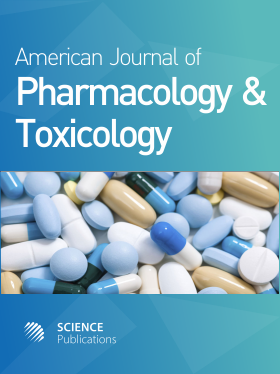Variability in Antihypertensive Drug Therapy and Compliance: Results from a Random Survey in the United Arab Emirates
- 1 University Sains Malaysia, Malaysia
- 2 Ajman University of Science and Technology Network, United Arab Emirates
Abstract
Problem statement: Hypertension is one of the most common diseases known as the ‘silent killer’ because it shows no clinical signs and symptoms. The high prevalence of hypertension in the United Arab Emirates stresses the importance to initiate a nation-wide effort to prevent and control high blood pressure in the population, especially since the prevalence rates are indicative of one of the highest in the world. Approach: This study was designed to investigate the prevalence of hypertension and antihypertensive medications in the United Arab Emirates-Abu Dhabi. A cross-sectional descriptive survey of one hundred sixty hypertensive patient ranging in age from 30 to above 60 years was carried out. A detailed questionnaire was printed out and distributed randomly among hypertensive patients in selected places in Abu Dhabi (pharmacies and hospitals). Results: UAE is a multicultural country with various nationalities living together. 26% of the patients included in this study were UAE nationals followed by Indians (15%). The prevalence of hypertension in males was higher than that in females. There was higher prevalence of hypertension in married patients (80.6%) as compared with the unmarried group (19.4%). A correlation exists between the high workload and the prevalence of hypertension. 36.2% of the individuals with mild obesity were hypertensive, while 26.2% of them were moderately obese. Obesity is certainly an important factor accounting for hypertension. It is observed that the worst association was obesity and familial history of hypertension, which had a prevalence of 27%, compared with other factors. Conclusion: Physicians, pharmacists and nurses should educate patients to understand their disease process which will help to improve compliance. It was suggested that programs for controlling systemic hypertension should be put in priority and better instructions for the population about the reasons that could make compliance with the antihypertensive treatment difficult, jeopardizing the appropriate control of blood pressure and increasing cardiovascular morbidity and mortality.
DOI: https://doi.org/10.3844/ajptsp.2009.46.55

- 5,979 Views
- 4,978 Downloads
- 0 Citations
Download
Keywords
- UAE
- compliance
- anihypertensive
- adherence
- counseling
- prevalence
